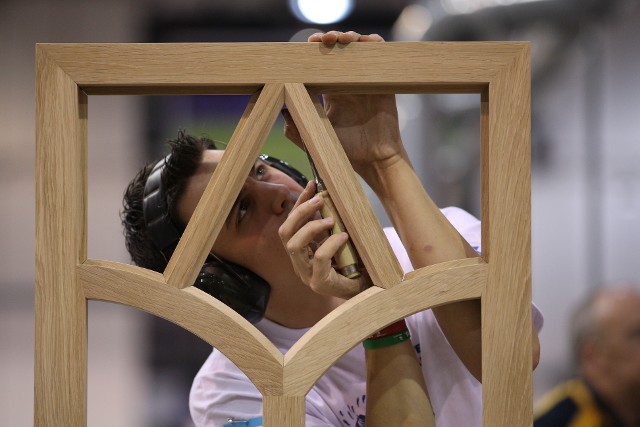A joiner generally works on commercial and residential projects. There is a direct relationship between the nature and quality of the product required and the payment made by the customer. Therefore the joiner has a continuing responsibility to work professionally in order to meet the requirements of the customer and thus maintain and grow the business.
Joinery is closely associated with cabinet making and carpentry plus other parts of the construction industry and with the many products that support it, normally for commercial purposes. The joiner is usually based in a workshop because the formation of various joints requires specialist machinery, but sometimes undertakes installations in the homes of customers and on building sites. He or she will produce and interpret drawings, set out and measure, cut, form joints, assemble, install and finish to a high standard.
The joiner usually produces items such as interior and exterior doors, windows, stairs, tables and bookshelves. Work organization and self-management, communication and interpersonal skills, problem solving, innovation and creativity, working precisely and accurately are the universal attributes of the outstanding joiner.
Whether the joiner is working alone or in a team the individual takes on a high level of personal responsibility and autonomy. From working safely through to exceptional planning and organizing, accuracy, concentration and attention to detail to achieve an excellent finish, every step in the process matters. Mistakes are largely irreversible and very costly. With the international mobility of people, the joiner faces rapidly expanding opportunities and challenges.
For the talented joiner there are many commercial and international opportunities; however these carry with them the need to understand and work with diverse cultures and trends. The diversity of skills associated with joinery is therefore likely to expand.
